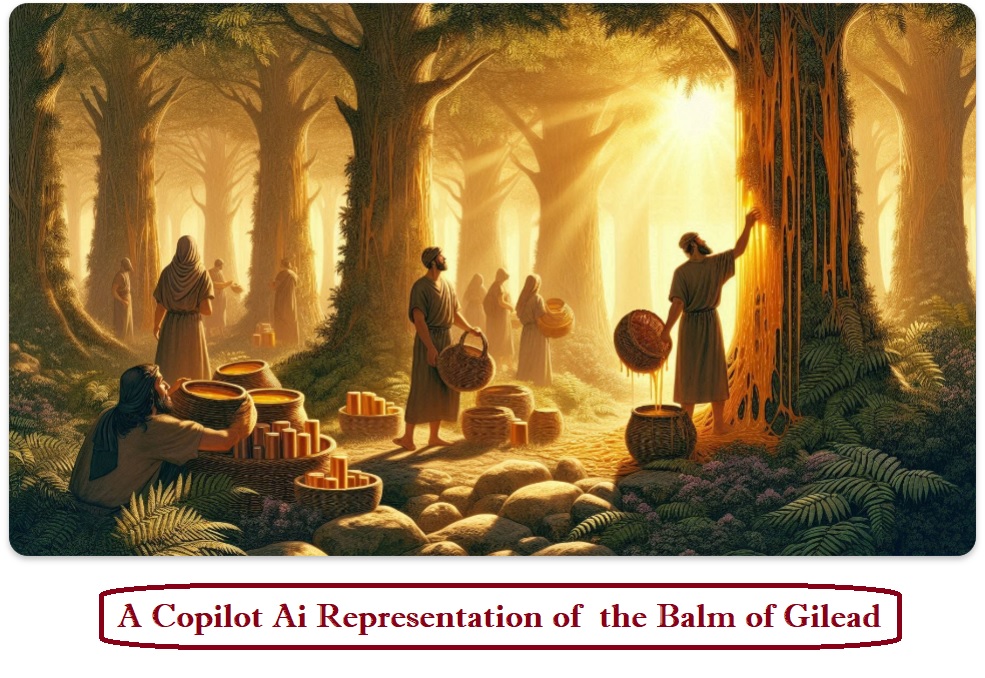“Go therefore and make disciples of all the nations…teaching them to observe all that I commanded you; and lo, I am with you always, even to the end of the age” (Matthew 28:19-20, NASB).
——————–
Contents
1) He Got Up and Followed Him (Doy Moyer)
2) The Cure for Our Souls (Bill Fairchild, Jr.)
——————–

-1-
He Got Up and Followed Him
Doy Moyer
Think about this for a moment. Jesus passed by “Levi the son of Alphaeus sitting in the tax booth, and He said to him, ‘Follow Me!’ And he got up and followed Him” (Mark 2:14). What an impression Jesus must have already made on Levi (Matthew) to cause him to get up and follow like this! Why would anyone do this?
Jesus was careful with his choices. He knew what He wanted and who could serve Him well, so telling someone to follow Him was no little matter. But why Matthew? Why would He choose a tax collector whose reputation was that of a swindler or a traitor? This must have been a shocking choice given all the other options He would have had before Him. Yet there is Jesus telling Levi to follow Him, and Levi got up and did it.
This must have taken a strong commitment on the part of Levi. To get up immediately and follow was risky. We see no evidence of hesitation on his part. He got up and followed Jesus, willing to pay the price and deal with the consequences. Why would he do this? Why would anyone do this? While we do not have all the reasons spelled out in the text, we can gather at least this much:
1. Levi would have seen the relative value of what he was leaving for what he was gaining. He knew it was worth the price he had to pay. Do we see the same? Compare what we give up with what we gain in Christ. Paul wrote, “For this light momentary affliction is preparing for us an eternal weight of glory beyond all comparison, as we look not to the things that are seen but to the things that are unseen. For the things that are seen are transient, but the things that are unseen are eternal” (II Corinthians 4:17-18).
2. Levi would have recognized his need for what Jesus was giving. He had to come to grips with the fact that he was a sinner in need of repentance and forgiveness. Yet only Jesus offered this. Jesus shows this very point in what happens next in the text (Mark 2:15-17).
Jesus was sitting and eating with “many tax collectors and sinners,” along with His disciples. The scribes and Pharisees wondered, “Why is He eating with tax collectors and sinners?” It made no sense to them. If Jesus was the Son of God, how can he associate with the sinful and unclean? No Messiah would do this! Yet this is where the problem lies. What kind of Messiah and Savior do we want? What do we need?
Jesus’ response here was on point: “It is not those who are healthy who need a physician, but those who are sick. I did not come to call the righteous, but sinners” (Mark 2:17). This struck hard against the scribes and Pharisees. They thought they were righteous; and because of this, they did not see the need for what Jesus was offering. They already had what they thought they needed. Why would they need Jesus?
Again, Levi would have followed Jesus because he saw what Jesus was offering as needed. If Levi saw himself as righteous, he likely would not have followed. If we see ourselves as already righteous, in need of nothing, then we will not follow either. We need to see where we stand before God to know why we need what Jesus gives.
Following Jesus, then, starts with recognizing who Jesus is, what He offers, and what we are in relation to Him. If we see ourselves as good enough, we will not follow, and this seems to be the problem that we sometimes encounter. People in the world see themselves as good enough. They don’t need what Jesus offers, they think. Why would they need to follow Jesus?
We follow Jesus not because we think of ourselves as righteous, but because we realize we are sinners who are sick and in need of the Great Physician. We need to keep a proper perspective lest we find ourselves like the Laodiceans in Revelation 3:17: “For you say, I am rich, I have prospered, and I need nothing, not realizing that you are wretched, pitiable, poor, blind, and naked.”
Seeing ourselves for what we are as sinners is necessary to follow Jesus. He says, “Follow Me.” In these words, Jesus presents a crossroads in our decision-making. To deny Jesus here is to say that we don’t need Him, that we are good enough on our own. Such pride will destroy us.
Jesus came to call sinners to repentance. Will we, like Levi, get up and follow Jesus? Or will we be like the scribes and Pharisees who saw themselves as righteous already and thereby denied Jesus? This is where discipleship begins.
— Via Articles from the La Vista church of Christ, September 12, 2023
——————–

-2-
The Cure for Our Souls
Bill Fairchild, Jr.
“Is there no balm in Gilead, is there no physician there? Why then is there no recovery for the health of the daughter of my people?” (Jeremiah 8:22, NKJV).
In every generation, diseases and illnesses of every sort are threatening our well-being and in some cases our lives. It was not so long ago that Polio was a serious illness for so many. Now in our time, cancers of every sort, HIV, and Hepatitis C have become our modern nemeses!
Each of these diseases serves to challenge the medical community and research institutions at alarming costs in the effort to find a cure.
Found in the heart of the Old Testament, the weeping prophet Jeremiah has seen with his own eyes the sickness and stubbornness of his people. He also understood that because of their rebellion against the God of heaven and His will, his people could not be healed by the “balm of Gilead.”
Gilead stood on the eastern side of the Jordan River. There would be trading caravans that traveled through this area from the east, moving south in the direction of Egypt. One of the products they brought with them to sell was an aromatic substance used for healing, called balm. In time, then, the term “balm of Gilead” became a phrase associated with “cures” and “healing.”
Jeremiah asks a very poignant question comprised of two parts, “Is there no balm in Gilead; is there no physician there?” It is this type of question, asked centuries ago, that even now echoes through time and resonates with us today. It speaks to mankind of our own shared human experience of pain, brokenness, and longing for healing. It points us to the “balm of Gilead,” a symbol of God’s provision for spiritual healing.
The “balm of Gilead” was a real, tangible substance, a resin derived from a tree native to the region of Gilead. It was known for its healing properties, used to soothe and heal physical wounds. But in the context of Jeremiah’s lament, the balm of Gilead takes on a deeper, spiritual significance. It becomes a metaphor for God’s healing, a symbol of His ability to soothe our spiritual wounds and restore our broken souls.
In the same way, mankind is lost in sin and in need of a Savior. God’s love for us is demonstrated in the great sacrifice of His “only begotten Son!” It is as real as the balm of Gilead, as tangible as the resin from the tree; and it is by His grace and mercy that forgiveness of sins, the opportunity to be at peace with God and be adopted into His spiritual family can be obtained.
The “balm” God offers is found in the person of Jesus Christ, the Great Physician, who came to heal the broken-hearted and bind up their wounds – yours and mine! And the healing that He provides is not something to be taken lightly. It is not some sort of a superficial band-aid for the heart and soul of man, but rather it is a cleansing that reaches to the very depths of our being.
It is deep and lasting. It touches our wounds with His love, soothes our pain with His grace, and restores our souls with His truth. It is a healing that transforms us, that makes us new creatures in Christ, which brings us the joy and peace of the salvation He alone provides. And it is to be understood that the “balm” found in Jesus requires our choice and participation. We must choose to come to Him and surrender our will to His!
This choice is not always easy. It requires humility, courage, and faith. It requires us to let go of our pride, our fear, and our self-reliance. It requires us to trust in Jesus, to rely on the strength, comfort, and guidance that will never fail us, and to rest in His love. He alone can heal us of all our sins!
— Via Articles from the Knollwood church of Christ, May 2024
——————-
The Steps That Lead to Eternal Salvation
1) Hear the gospel — for that is how faith comes (Rom. 10:17; John 20:30-31).
2) Believe in the deity of Jesus Christ, the Son of God (John 8:24; John 3:18).
3) Repent of sins. For every accountable person has sinned (Romans 3:23; Romans 3:10), which causes one to be spiritually dead (Ephesians 2:1) and separated from God (Isaiah 59:1-2; Romans 6:23). Therefore, repentance of sin is necessary (Luke 13:5; Acts 17:30). For whether the sin seems great or small, there will still be the same penalty for either (Matt. 12:36-37; 2 Cor. 5:10) — and even for a lie (Rev. 21:8).
4) Confess faith in Christ (Rom. 10:9-10; Acts 8:36-38).
5) Be baptized in water for the remission of sins (Mark 16:16; Acts 2:38; 22:16; 1 Pet. 3:21). This is the final step that puts one into Christ (Gal. 3:26-27). For from that baptism, one is then raised as a new creature (2 Cor. 5:17), having all sins forgiven and beginning a new life as a Christian (Rom. 6:3-4). For the one being baptized does so “through faith in the working of God” (Col. 2:12). In other words, believing that God will keep His word and forgive after one submits to these necessary steps. And now as a Christian, we then need to…
6) Continue in the faith by living for the Lord; for, if not, salvation can be lost (Matt. 24:13; Heb. 10:36-39; Rev. 2:10; 2 Pet. 2:20-22).
——————–
Tebeau Street
CHURCH OF CHRIST
1402 Tebeau Street, Waycross, GA 31501
Sunday: 9 a.m. Bible Classes and 10 a.m. Worship Service. Congregational Song Service: 5 p.m. for every first Sunday of the month.
Wednesday: 7 p.m. Bible Classes
evangelist/editor: Tom Edwards (912) 281-9917
Tom@ThomasTEdwards.com
https://thomastedwards.com/go/all.htm (This is a link to the older version of the Gospel Observer website, but with bulletins going back to March 4, 1990.)